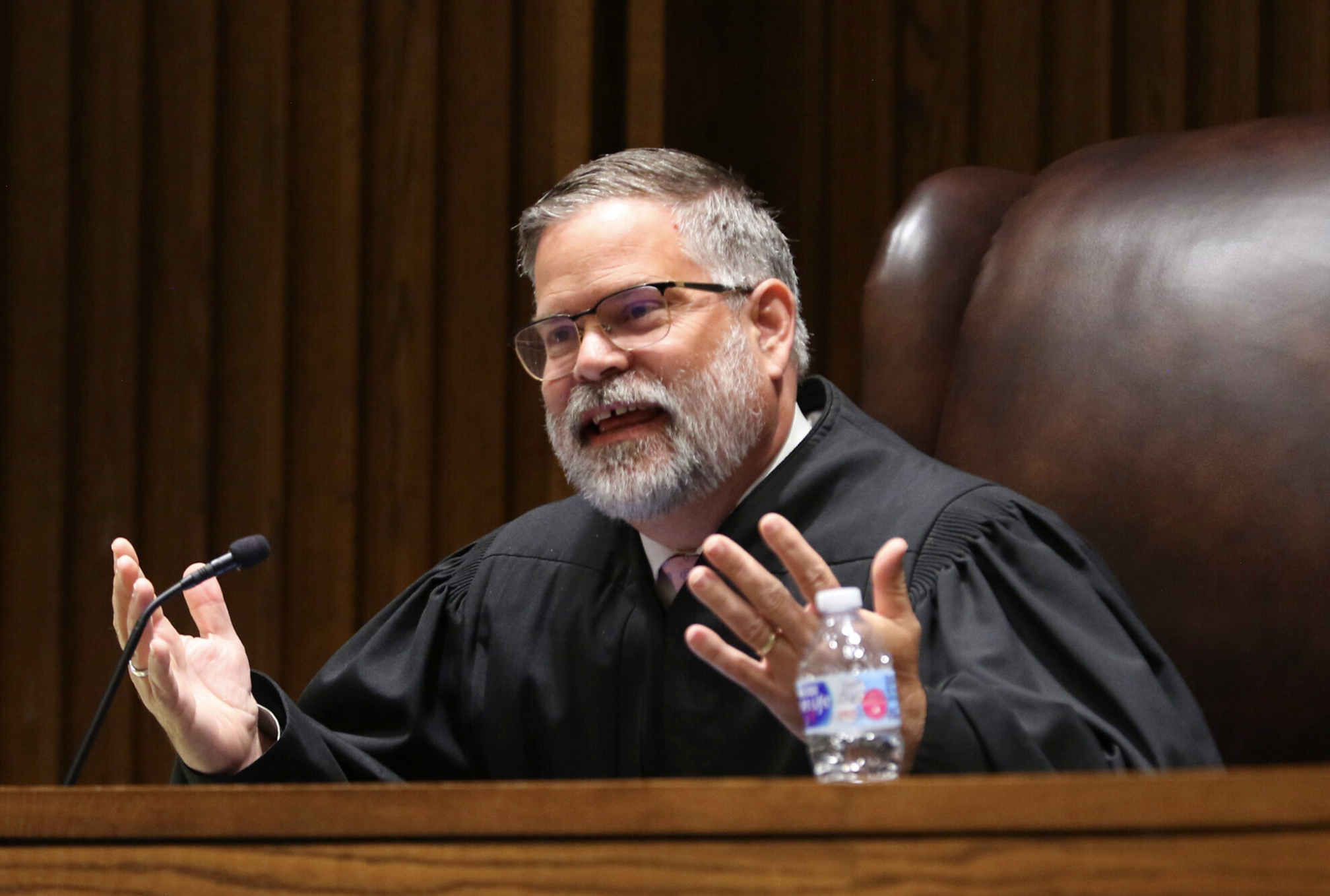
BY: SHERMAN SMITH
Kansas Reflector
TOPEKA — The Kansas Supreme Court sided Friday with a woman who lost a job offer when she refused to get a COVID-19 vaccine, rejecting the employer’s arguments that federal law supersedes a state law restriction on questioning the sincerity of religious beliefs.
Katlin Keeran, an occupational therapist who lived in Johnson County, initially cited concerns about the use of fetal cells in the development of COVID-19 vaccines. But under questioning by Powerback Rehabilitation, she said she had previously gotten the flu vaccine but didn’t want to get the COVID-19 vaccine because “I am not familiar with it.” The company rescinded its employment offer.
Keeran filed a complaint with the Kansas Department of Labor, saying the company violated a law passed by the Legislature during a 2021 special session that allowed individuals to opt out of a federal vaccine mandate and made it illegal for employers to question the sincerity of religious beliefs.
Because Powerback receives Medicare and Medicaid funding, it was subject to the vaccine mandate as a condition for receiving those dollars. Federal law empowers employers to question the sincerity of a religious belief.
Powerback argued it was impossible to comply with both federal and state laws, and that federal law should prevail.
Justice Caleb Stegall, who was appointed by Gov. Sam Brownback, wrote the opinion for a 4-2 majority. He said the company’s argument was “simple and alluring at first blush” but “incorporates a deft sleight-of-hand.”
Federal law allows, but doesn’t require, an inquiry, Stegall wrote, and the state has an interest in preserving religious liberty.
“Prohibiting an inquiry by an employer into the sincerity of a religious belief is clearly rationally related to protecting cherished liberty interests,” Stegall wrote.
The court reversed a Johnson County District Court ruling that found the state law unconstitutional.
Justice Melissa Standridge, who was appointed by Gov. Laura Kelly, wrote a dissent that was joined by Justice Eric Rosen, who was appointed by Gov. Kathleen Sebelius.
Standridge wrote that Kansas law “stands as an obstacle” to federal objectives. An employer should be justified, she wrote, in seeking supporting information about an prospective employee’s religious accommodation.






